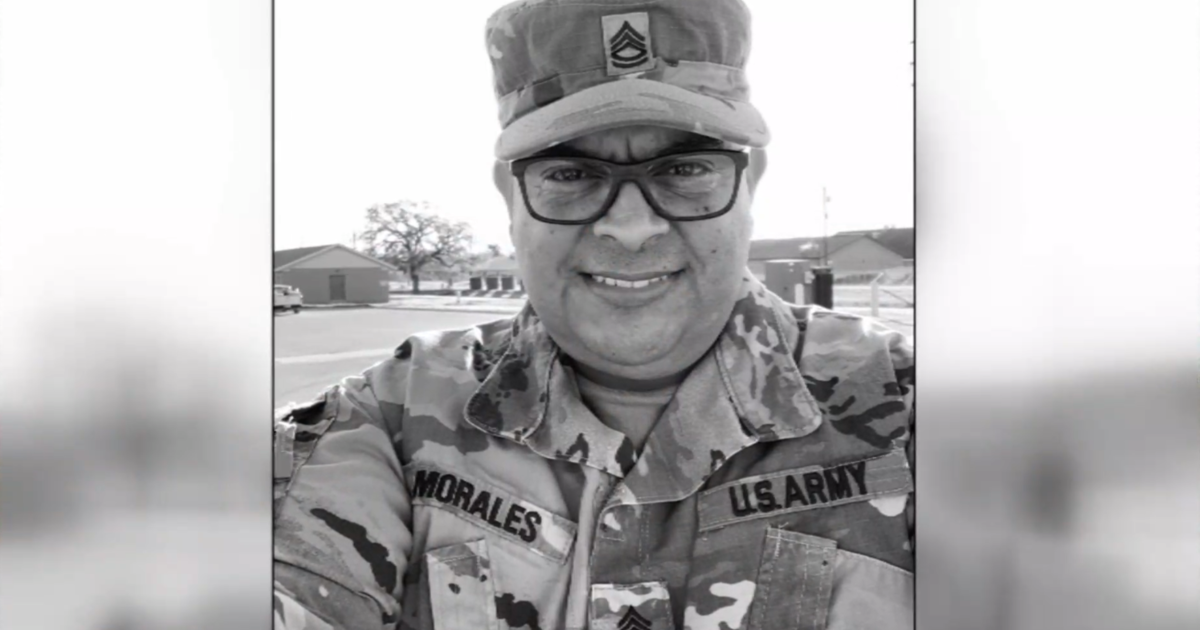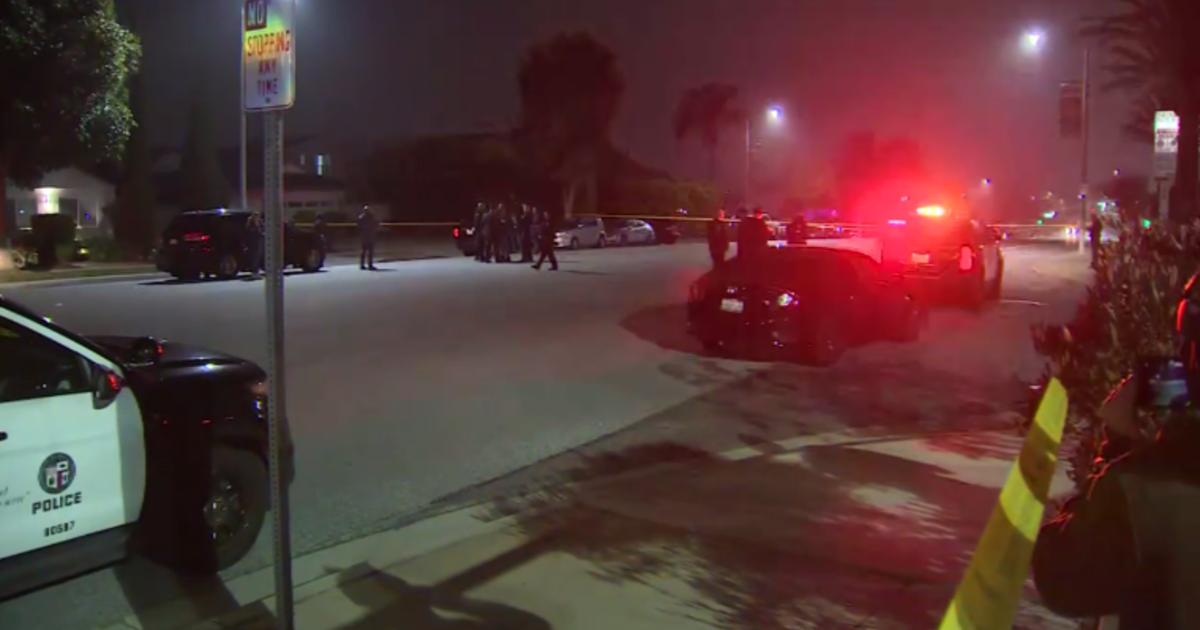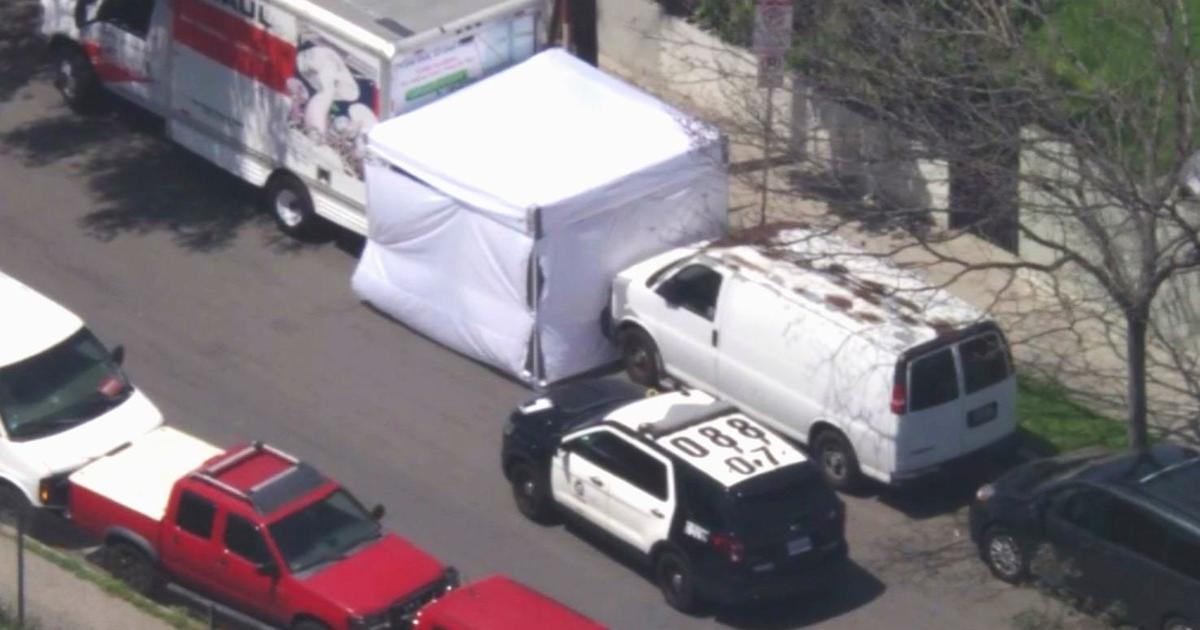Suspect In Killing Of Whittier Officer Was Arrested 5 Times For Probation Violations, Authorities Say
LOS ANGELES (AP) — California's efforts to ease overcrowding in state prisons did not lead to an early release of a gang member accused of killing a police officer and wounding another but may have shortened the amount of time he was locked up for repeated probation violations.
Michael Christopher Mejia, 26, was arrested Monday after police said he killed his cousin, crashed his cousin's car then fatally shot Whittier police Officer Keith Boyer and wounded Officer Patrick Hazell when they responded to the accident.
Mejia was released from the super-maximum Pelican Bay State Prison in April and placed on probation with county supervision, instead of parole with state supervision, under a reform measure known as Assembly Bill 109 that was enacted by state legislators in 2011.
Since then. Mejia was arrested five times for violating his probation, most recently on Feb. 2, Los Angeles County sheriff's Lt. John Corina said. In each of those cases, he was held for only 10 days.
Had Mejia been under the supervision of state parole agents, he could have been locked up for as long as six months on any of the violations.
The case has reignited a contentious debate over a series of criminal justice reform measures in California that supporters say allows non-violent criminals a better chance to rebuild their lives and contribute to society but many in law enforcement say overtaxes local lockups and leads to some dangerous criminals being back on the streets.
At an emotional news conference hours after the officer's death Monday, Whittier police Chief Jeff Piper pointed to the reform measures, saying "enough is enough."
"You're passing these propositions; you're creating these laws that are raising crimes," Piper said. "It's not good for our communities and it's not good for our officers. What you have today is an example of that."
Magnus Lofstrom, a senior fellow at the Public Policy Institute of California who has studied the impact of the reform measures, said there was no evidence that implementing Assembly Bill 109 led to an increase in violent crime. He said a study found there was a rise in property crimes, mainly caused by a spike in auto theft after the measure was enacted.
Under a separate California law, probation officers can send offenders who violate the terms of their probation to county jail for 10 days without a judge's order or a court hearing. The provision was intended to give probation officers a tool to keep offenders straight without needing to prepare a case to present to a judge.
There is no such option in the state system, said Jeffrey Callison, a state prison system spokesman. Offenders must appear before a judge and face up to six months behind bars for violations.
"Under state parole, their parole can be revoked. With probation, it's a lot more lenient," said Kathryn Barger, a Los Angeles County legislator who has called for an investigation into the policies. "We're dealing with a population that is not going to respond to a slap on the wrist."
Mejia was sentenced to four years in prison in 2010 on a felony robbery charge, which included an enhancement on his sentence because he was identified as a member of a street gang, and he was released on parole in 2014. While free, Mejia was arrested again on grand theft and vehicle theft charges and sentenced to an additional two years in prison. Authorities said Mejia was released from Pelican State Prison in April and placed on probation.
Mejia, whose face is covered in tattoos, remained hospitalized Wednesday after being wounded in the gunfight on Monday. It wasn't immediately clear if he had an attorney who could comment on the allegations.
(© Copyright 2017 The Associated Press. All Rights Reserved. This material may not be published, broadcast, rewritten or redistributed.)



